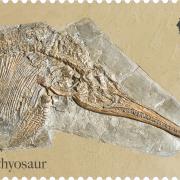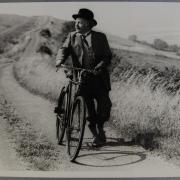Coming a cropper on the ski slopes may no longer mean months in plaster.
It’s the middle of the ski season – an exciting time for athletic holidaymakers. But it also means a spike in injuries for what can be described as “weekend warrior” – athletes who come a cropper on the slopes. The most common ski injuries I see are ankle and Achilles tendon injuries, and I always aim to get patients with such injuries back into action as quickly as possible.
With modern techniques recovery can now be much quicker than expected. I increasingly use keyhole surgery for foot and ankle procedures, which speeds up the process of recovery and ensures the patient suffers less from stiffness and swelling.
People tend to have this perception that they are going to be immobilised in plaster for months on end and take a long time to recover. But in reality, although we do occasionally put some patients in plaster, most people get going very quickly. We now use the most modern methods to stabilise fractures, such as locking plates and screws – this often allows patients to walk out of hospital the same day.
As one of the main groups of patients I see is people who are suffering from sports injuries, a quick recovery can make a big difference. The aim is to get people back to normal as quickly as possible, both as a result of pressure from work, as well as their desire to get back to sport. As a keen skier myself, I can certainly understand that.
For example, a common procedure for an ankle injury would be to do something called an arthroscopy, which is keyhole surgery. After arthroscopy, you have a week or two of walking around cautiously, but once the wounds have healed, you can really push on with rehabilitation and physiotherapy. I have had people back playing sports such as football within two to four weeks of an ankle arthroscopy. But with open surgery, you would often be looking at around three months out.
If you’re injured on the ski slopes abroad, you’re likely to be taken off the mountain by the mountain rescue team. Depending on your injury you may then be operated on or fixed up at a local hospital and then referred to further care when you get home.
Of course, the best solution is to avoid injury in the first place. Make sure you wear a helmet, don’t ski if you have had too much alcohol, make sure your skis and boots fit well and that your bindings are adjusted to suit your level, to ensure that they release when you fall over.
About Heath Taylor
Heath Taylor is a member of the British Orthopaedic Foot and Ankle Society and the British Orthopaedic Association. He offers private consultations at Nuffield Health Hospital Bournemouth. Those interested in booking a confidential consultation with Mr Taylor are invited to visit their GP for a referral. For more advice, please call the hospital’s customer team on 01202 702830.
***
READ ON
• Bournemouth University forensic toxicologist on how cutting edge technology helps us understand complex illegal drugs - David Osselton, a forensic toxicologist at Bournemouth University, explains how cutting edge technology is helping scientists to understand ever more complex illegal drugs.
• Former Miss England Jackie Turner on keeping fit, working with Formula E and artist management - Twelve years after her reign as Miss England, Jackie Turner is still living the jet-setting life, but the glamour has become more… plugged-in.
• Running club in Dorchester/Weymouth - Dorset Sole Sisters - You can see the Dorset Sole Sisters running in their distinctive sky blue and magenta vests on Monday nights in Dorchester and Wednesdays in Weymouth.



























